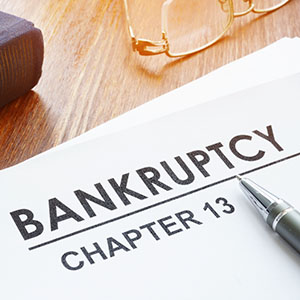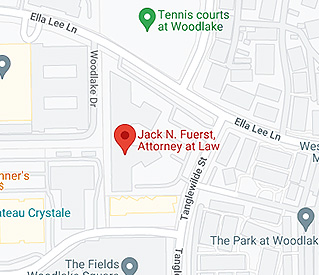 A Chapter 13 bankruptcy is when you file bankruptcy with a repayment plan that has a duration of 36-60 months to pay back money owed on a home mortgage or vehicle and certain other debt. You file chapter 13 bankruptcy to prevent a foreclosure or repossession of a vehicle. Chapter 13 bankruptcy will allow the recovery of a repossessed vehicle in certain situations. In the case of a mortgage, it requires you to make the monthly mortgage payment as well as pay something on the arrears that are owed. By the time the Chapter 13 plan is completed, your arrears will be paid in full.
A Chapter 13 bankruptcy is when you file bankruptcy with a repayment plan that has a duration of 36-60 months to pay back money owed on a home mortgage or vehicle and certain other debt. You file chapter 13 bankruptcy to prevent a foreclosure or repossession of a vehicle. Chapter 13 bankruptcy will allow the recovery of a repossessed vehicle in certain situations. In the case of a mortgage, it requires you to make the monthly mortgage payment as well as pay something on the arrears that are owed. By the time the Chapter 13 plan is completed, your arrears will be paid in full.
The plan and payment required depend upon your income and your expenses. Excess income is determined by deducting living expenses from your income over a certain time period. Excess income is used to determine the monthly payment required in your plan. Your plan should take care of all your secured creditors.
After the secured creditors are paid, any excess income remaining would go to the unsecured creditors. The secured creditors would have to be paid the full amount and the unsecured creditors can take a percentage of what’s left.
What Type Of Debt Is Dischargeable In A Chapter 13 Bankruptcy?
The type of debt dischargeable in a Chapter 13 bankruptcy is the same as in Chapter 7. The primary difference in a Chapter 13 bankruptcy is that you have a plan. If your excess income is such that there is an amount left over for the unsecured creditors, then the unsecured creditors take a percentage based on their debt to total unsecured debt.
What Assets Can I Keep In A Chapter 13 Bankruptcy?
You can keep the same assets as in a Chapter 7 bankruptcy, i.e., household goods, clothing, and certain jewelry. The same exemptions apply.
For Chapter 13 bankruptcy there are three things that you need to remember to have a successful plan: make your monthly payments, make your monthly payments, and make your monthly payments to the trustee.
Upon the completion of the plan, you’ll be out of bankruptcy and able to keep your secured property.
Will I Lose Anything If I File A Chapter 13 Bankruptcy?
That answer depends on if you have an experienced bankruptcy lawyer to represent you. For example, you have your homestead which is exempt property but if you have other pieces of property which are not exempt you could lose those.
How Long Does A Chapter 13 Bankruptcy Generally Take To Complete?
It depends entirely on the situation. The maximum is 60 months (5 years) or 36 months (3 years). It is dependent upon how much excess income you have to put into the plan and how much debt you have.
For more information on Chapter 13 Bankruptcy In The State Of Texas, a free initial consultation is your next best step. Get the information and legal answers you are seeking by calling (832) 400-4384 today.

Call For A Free Consultation
(832) 400-4384
